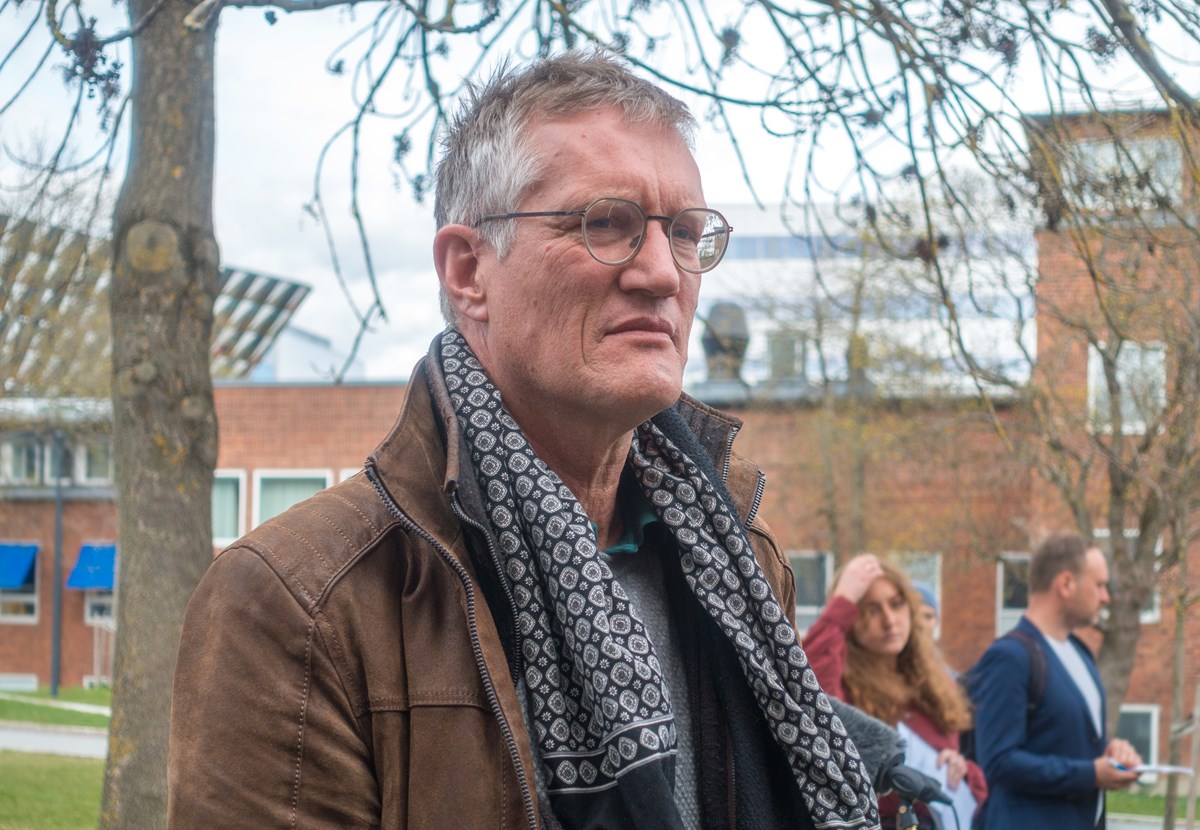Swedish officials announced they’d be offering authorities new COVID-19 recommendations this week.
Anders Tegnell, the nation’s top epidemiologist, will be meeting with regional health authorities to discuss measures in response to case increases in Stockholm and Uppsala, a city about 70 kilometers north of the Swedish capital, The Telegraph reported on Saturday.
US media, who have been critical of Sweden’s “lighter touch” approach to the coronavirus, were quick to pounce on the news, claiming Sweden was abandoning its no-lockdown strategy.
“Sweden is moving away from its no-lockdown strategy and preparing strict new rules amid rising coronavirus cases,” tweeted Catherine Rampell, an opinion writer at the Washington Post who writes on economics.
Sweden is moving away from its no-lockdown strategy and preparing strict new rules amid rising coronavirus cases https://t.co/wyo5UL5JX3
— Catherine Rampell (@crampell) October 19, 2020
Other blue check mark accounts on Twitter celebrated Sweden’s apparent reversal of its laissez-faire policy.
Experiment failed.
— Laurie Garrett (@Laurie_Garrett) October 19, 2020
So much for "herd immunity." https://t.co/AA2CtI60gO
NEW: Sweden finally gives up on it's 'no lockdown' strategy. https://t.co/JdD4tx5DqK https://t.co/MTxnC8MNKn pic.twitter.com/0ZDovd6MB5
— Matt McCarthy (@DrMattMcCarthy) October 19, 2020
Sweden will shift away from its coronavirus strategy of opting against lockdown measures and instead embrace restrictive measures adopted by most of its neighbors amid growing case numbers in the countryhttps://t.co/mES9H6DQLQ
— Alfons López Tena (@alfonslopeztena) October 19, 2020
As someone who has covered Sweden’s approach to COVID-19 for months, the news came as a bit of a surprise, especially considering the World Health Organization’s recent advice against the use of lockdowns as a primary method of containing the virus. But then I actually read the articles in question and two facts became clear.
First, the headlines are wrong. Tegnell explicitly states Sweden is not implementing a lockdown.
"It [the latest measures] is not a lockdown but some extra recommendations might be communicated locally when a need from the regional authorities is communicated,” Tegnell told Newsweek (who nevertheless ran the alarmist headline “Sweden, Which Refused Lockdown During COVID First Wave, Imposes Restrictions as Cases Soar”).
Recommendations is the key word here. A careful reading of Tegnell's comments and the actual reporting makes it clear Sweden has not yet imposed any new restrictions, let alone a lockdown, and merely will be advising regional health officials on public health recommendations to slow the spread of the virus following a resurgence of cases in October.
As Business Insider reports, the new strategy “will give local authorities the power to strongly recommend people to avoid busy public places like shopping centers, museums, gyms, concerts, and sports matches. Swedes may also be asked to avoid public transport and contact with those considered most vulnerable to severe infection.”
This might sound more like the policy of the US, where federalism has allowed states latitude to implement policies based on recommendations of the Centers for Disease Control and Prevention and other federal agencies.
The big difference, of course, is that despite the change, Swedish officials are still “asking” and “recommending.” This is a stark contrast to the approach of other countries, as well as many US states. These governments are not asking or recommending. They are mandating social distancing and lockdowns, and citizens who do not comply are shut down, fined, jailed, and even beaten.
You don’t have to read the fine print of the articles to see that Sweden is not taking this approach.
“Unlike in other countries, Business Insider reports, “there are not expected to be fines or legal consequences for people who decide not to follow any new advice. Bitte Brastad, the chief legal officer at Sweden's public-health agency, said the rules were ‘something in between regulations and recommendations.’”
Despite clear statements from Tegnell saying the strategy “is not a lockdown” and the clear absence of fines or legal consequences, many seem intent on framing Sweden’s announcement as a lockdown. Indeed, despite its own reporting, Business Insider’s headline stated “Sweden is moving away from its no-lockdown strategy.”
The question is why. There are two explanations that come to mind. First, it’s not uncommon for people to tweet or share articles that they didn’t bother to read. One analysis, the Washington Post reported, found that as many as 60 percent of the links shared on social media haven’t been read.
“People are more willing to share an article than read it,” said study co-author Arnaud Legout.
Apparently, this may even include certain distinguished journalists on Twitter who share sloppily headlined articles because the article supports something they want to be true but is actually not true.
The second possibility is that people are attempting to distort the truth about what’s actually happening in Sweden, consciously or subconsciously.
As I noted months ago, Sweden has become a punching bag for many intellectuals and lockdown proponents because it has rejected the conventional approach to lockdowns. By embracing a more laissez-faire approach to the pandemic instead of a centrally planned one, Sweden undermines the narrative that the lockdowns were necessary and saved millions of lives.
In doing so, Sweden has also found itself thrust into a larger battle over who is more equipped to plan society, individuals or central planners.
As the economist Ludwig von Mises famously observed, a great deal of modern strife is the struggle over who designs the world, individuals or authorities. Authorities, Mises saw, seek “the substitution of the planner’s own plan for the plans of his fellow-men.”
In a sense, the pandemic became the most expansive experiment in central planning since the collapse of the Soviet Union. We see its fruits today.
The lockdowns have resulted in trillions of dollars in economic losses and have driven 8 million Americans into poverty; 100 million have been driven into extreme poverty globally. Social isolation has driven untold numbers of people to suicide, drug overdoses, and depression.
For the people who designed these policies, supported them, and believe in them today, it’s important that they are viewed as a success.
After all, we’re witnessing the most sweeping infringement of economic liberty in American history. If it’s discovered this devastation was in vain, that nations without lockdowns experienced the virus in much the same way as nations with lockdowns, there will be a reckoning.
The experts know this. And that’s why Sweden must fail, regardless of the actual results of its policies.
Sweden: still at zero deaths
— Dr. Stoxx (@DrStoxx) October 19, 2020
No lockdown, no job losses, no school closures. pic.twitter.com/A0ITNcAMNg
Sweden now has one of the lowest covid death rates in all of Europe. It does so without masks, without closures, and without lockdowns.
— Yinon Weiss (@yinonw) October 19, 2020
You would think scientists should obsess to learn from them, but doing so would undermine their narrative. So they attack Sweden instead. pic.twitter.com/ba6swxTmjN
Given all the politics around how c19 deaths are or are not labeled, looking at total deaths can be useful. I graphed Sweden's total deaths per million for Jan-Sept, over 7 years.
— Yinon Weiss (@yinonw) October 19, 2020
As the only western country not to lock down, why aren't more people driven to learn from Sweden? pic.twitter.com/XrFY2FNuUn





